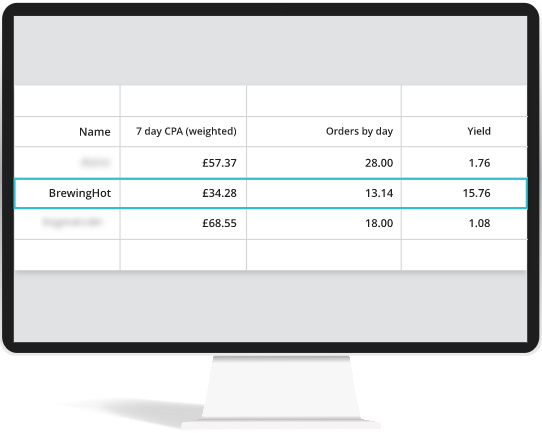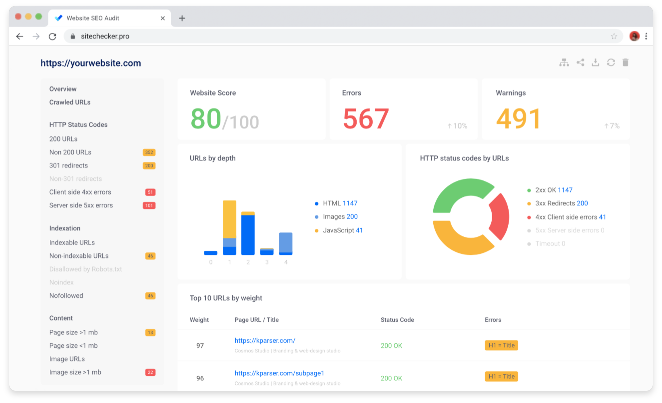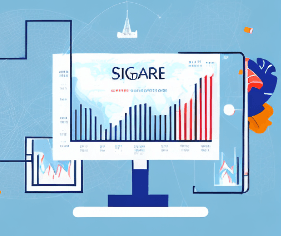From start-ups to Fortune 500 companies, we work with brands to grow their revenue.







Enjoy explosive results and top-notch service from the best SEO agency.
With more than 12 years of experience scaling ecommerce brands and SaaS globally , we are not the typical SEO agency in Malaysia as we strive to bring world class seo and proven strategies to help with Malaysian brands.
Highground is incorporated to solve the common issue found mostly in SEO agency in Malaysia – client didn’t not get the full high impact SEO
Most agency is heavily focused on reporting and fancy metrics , but very less is on actual performance such as ecommerce sales.
With the knowledge and experience in gaming industry , Gerald brings a vast knowledge working in companies such as SmileGate ( Korea’s largest gaming company) and SkullShaver ( One of the top shaver ecommerce in the US).
Results in 90 days!
or we work for free.
Seeing how drastic in performance from an in-house SEO team vs an SEO agency, HighGround is inspired to change that and fill up the gap and helping companies to drive revenue through world class SEO methodology.
The only way do to great work is to love what we do – and our research and methodology even featured and mentioned from websites such as Backlinko.com (Top authority in SEO).


OUR RECENT WORK
Mahabis Lean Campaign
Case Study
Mahabis is a UK-based footwear brand known for its comfort-first approach. The company attempts to expand its reach to the Asian markets. New revenue streams are created from markets such as Japan, South Korea, and more.
We develop a lean campaign structure with different approaches to break into these untapped territories. Budgets are carefully distributed throughout the campaigns to create new targets.
Up to
900
conversions at the end of the campaign
£45
or less spent on CPA, which surpassed other previously hired agencies
50 Days
only spent on the total multi-tier campaign, including retargeting ads to hit targeted sales
Our SEO Process

Website audit
World-class SEO audit consists of 113 in-depth optimisation and fine-tuning blueprint to discover low-hanging opportunities to improve rankings.

Step 2
Topical Map Research
Identify topic clusters, market persona mapping, site structures, and overall SEO direction to scale organic performance with data-proven strategy.

Step 3
Market Persona Research
Discover in-depth content strategy with market persona analysis serving as a proper framework to build content that resonates with users and drives keyword performance in the long run.

Step 4
Website Structure Planning
Compose organized web pages for a smoother flow of information to be user and search-engine friendly.

Step 5
Content Marketing
World-class SEO audit consists of 113 in-depth optimisation and fine-tuning blueprint to discover low-hanging opportunities to improve rankings.

Step 6
Link Building
Identify topic clusters, market persona mapping, site structures, and overall SEO direction to scale organic performance with data-proven strategy.
We’re the best SEO agency for your company, & here’s why.
Outrank Amazon and eBay in US search
Learn how we ranked #1 for Batik Shirt worldwide with just 8 backlinks – outranking Amazon and eBay in USA and featured in Shopping feed.
Proven SEO methodologies to scale eCommerce with global traffic.
At HighGround, we have created 5 pillars of process to help eCommerce brands to rank their website global.


Here’s what you’ll be getting when you work with us.
Reach the full potential with integrated SEO solutions for accelerated growth. We will get your website on the search engine front page with all tactics under our belt. Ready to take your brand to the next level?
Increase online visibility
Enhance user experience
Expertise and support
Measurable results
Higher search engine rankings

$1.8 Billion
in sales for our clients

500+
Google revises globally with a 4.9/5 ratings

Won 14
dgital awards and counting…
Testimonials
At HighGround, we are passionate about the results that we deliver to our customers. Here are some of the amazing feedback that our customers have given us :

SECOND FLIGHT AGENCY
Nick Kullin

Gerald and his team at HighGround were 5 ***** !, They were so efficiently and deliver solid results for anyone looking to have Facebook backend team to manage their Facebook Ads account

NO LIMIT COIN
Nick Kullin

Great agency no need to get big New York agency. this is as effective. Great work and we plan to use them again and again

SOUNDBOPS
Michael Tougher

We were struggling with to gain conversions for our pre-orders on Indiegogo through paid campaigns. From starting to work with Gerald and his team, we were quickly gained high return on invesment. Great communication and understanding.
The Different types of SEO Services
SEO, or search engine optimisation, refers to the various techniques and strategies used to improve the ranking of a website or webpage in search engine results pages (SERPs). There are several components of SEO, including:

On-page SEO
Site structure research & planning, topical relevance optimisation, search experience optimisation and speed optimisation.

Content Marketing
World-class content planning and development with data proven approach to ensure client’s content are able to compete at global stage.

Off-page SEO
Proven link building strategy customised for client’s nature of business such as HARO, link bait content, industry researched content, tools comparison, and infographics content.

Local SEO
Global business but looking to capture local audience or physical businesses looking to dominate the local search? We have complete in-house resources from citations to brand mentions that works very effective for local businesses.
Tired of your current SEO company giving you false promises?
Is your SEO company not giving you good keyword rankings and qualified traffic? They might be doing it all wrong.

Keyword Stuffing
The unnatural placement of keywords in content is a big turn-off for search engines and readers. If there is an apparent emphasis on keywords, it’s time to delete the content and SEO company.

Irrelevant Content
When content has sufficient research and matches search intent, it becomes relevant. Conversely, subpar website traffic can be attributed to less-than-desirable content.

Ignoring Technical SEO
On-page and off-page SEO are essential, but so is technical SEO. A good SEO company knows the importance of making a website adhere to search engine technical requirements.

Link Spam
If your website pops up in out-of-context web pages, that means link spamming. This method of building backlinks is frowned upon by search engines.
Not convinced? Here’s more reasons why you should work with us.
100% transparent and in-depth reporting with actionable insights and expert recommendations.
Unmatchable and frequent performance milestones.
We employ 100+ in-house performance marketers, SEO technicians, developers and social media specialists in our Malaysia office.
We are one of the rare (only 3% in the world!) top global agencies to achieve the Google Premier Partner title.
Featured In
How Does A Successful SEO Works?
By following the best practices and guidelines of SEO, a website can rank higher on search engines and attract more organic traffic.

Digital Account Manager
Behind every successful website is an intelligent account manager. All planning and execution of SEO strategies require a high-caliber professional to stimulate progress.
Keyword & Market Research
Continuous keyword and market research are compulsory to develop SEO strategies that surpass competitors. It requires the right skills and tools to produce actionable findings for real change.


Website Optimisation
It takes more than a temporary fix to stay on #1. A concerted effort from different angles, from content to UX, is essential to align with best SEO practices.
Other SEO solutions designed to
skyrocket your revenue & showcase your kick-ass brand to the world.

Local & National SEO
Make your brand visible to everyone. Let your products and services shine with industrial experts. We elevate your websites to #1 on the search engines.

Link Building
Building authority and trust in a website is a long-term game. The complexity can be simplified with our expertise – no suspicious backlinks. Only the high-quality is selected.

WooCommerce
Discover in-depth content strategy with market persona analysis serving as a proper framework to build content that resonates with users and drives keyword performance in the long run.

International SEO
Go beyond the borders for expanded reach. Our experience with international clients prepared us with the best practices to launch your brand worldwide.

Claim your 100% free REVENUE GROWTH strategy session with an experienced digital strategist valued at RM1,500.
We outline foolproof strategies for significantly increasing website traffic and
revenue, even in difficult economic times.
FAQs About Our SEO Services
What is SEO?
Suggested Articles

SEO
What is PBN Links?
POSTED ON MAY 2, 2023

SEO
Topical Map Research
POSTED ON MAY 2, 2023

SEO
SEO Website Structure
POSTED ON MAY 2, 2023

SEO
Market Persona
POSTED ON MAY 2, 2023
